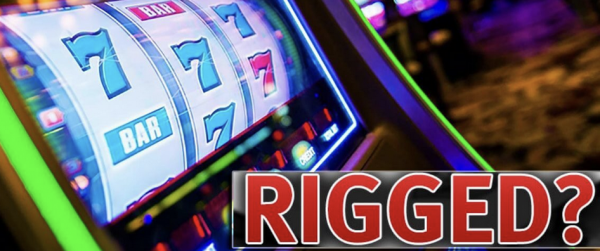Why Some Casino Games Feel More ‘Rigged’ Than Others
If you’ve had an unlucky streak playing casino games, you might be under the impression that these games aren’t fair. Let’s face it, some games feel more rigged than others.
But, is that really the case? Or do perception and luck play a bigger role than you think? This is something we’ll explore throughout this article.
The Psychology Behind “Rigged” Perception
Many online casino games, such as slots, are developed with an RNG (Random Number Generator). This guarantees that the results are always random. But when these results aren’t working out in the player’s favour, they can be misinterpreted as bias.
According to the online casino experts we interviewed at casinobonusdeals.io, the fast-paced nature and high-frequency losses of slot games can often lead players to feel these games are rigged. Near-misses are so common in slots, that it leaves players feeling cheated.
One of the biggest problems with near-misses is that it can set a player off to start chasing their losses under the perception that they will get the win next time. But, since a win can never be guaranteed, this can set a player off on a losing streak. When they lose the illusion of control, they assume the game is rigged instead of realizing this is how gambling works.
House Edge Isn’t Hidden—But It Feels That Way
The house edge of casino games isn’t a secret. But, it can feel that way if players don’t have a full understanding of the odds.
If they see that a game has 95% RTP (Return to Player rate) they believe that there is a 95% chance of winning. But that’s not how the odds actually work.
Casinos have the house edge to give them an advantage in order to make a profit. The house edge is the percentage of a game’s wager that the casino keeps, while the remainder of the wager goes into the prize pot to pay out to winning players. The house edge can be calculated by subtracting the game’s RTP from 100.
The house edge varies per game. For example, the casino has a lower house edge in skill-based games like blackjack, with an average of 2%. This is because the player uses a strategy to make decisions that affect the results of the game.
On the other hand, the casino has a higher house edge for slot games with an average of 4%-5%. The results of slots are always random, so a newcomer has the same chances of winning as a pro gambler.
Game Design Tricks That Influence Perception
What’s disappointing is that there are many elements within certain casino games that can lead players to feel that a game is unfair. This feeling gets taken to new heights when a game has flashy animation that keeps them on the edge of their seats, only to reveal a near-win time and time again.
Another aspect that’s not necessarily a trick but makes players feel like it is, is the variable RTP rate in slots. Each slot is promoted with the highest RTP, but wagering size, bonus features, and other options in the game can influence the exact RTP.
A lot of players misconceive what the Return to Player rate really means. NetEnt has an average RTP of 96.51% in their games, so sometimes players perceive this to mean that if they gamble $100, they will automatically receive at least $96.51.
But, the reality is that if they wager $100, $96 goes into the prize pot. This will be paid out to winners randomly. There’s no way to predict who the lucky winner will be, which can leave players feeling cheated if they don’t understand that.
Many online casino games play out at a lightning-fast speed. On an unlucky night, this could lead to a player losing their deposit within minutes, especially if they weren’t paying attention to how many rounds they were playing. The faster someone loses their money, the more likely they are to feel the game is unfair.
Are Some Games Actually Unfair?
Some games feel more unfair than others, and this goes beyond bad luck. This is why players can benefit from choosing games from trusted software providers, like Pragmatic Play, NetEnt or Evolution, which have been tested for fair play. Unknown developers can be riskier because of the lack of transparency on how the game operates.
Games that aren’t transparent could intentionally have low payout rates. They may not publicly release information on the RTP rate because of how low it is.
Another thing to be aware of is games that use a trick pattern to push players into spending more money without increasing the odds of winning. This can be done through features that seem innocent enough at first (like double-ups, loot boxes, or pay-to-skip features) but are ultimately a tactic to get more money out of players.
|
|















